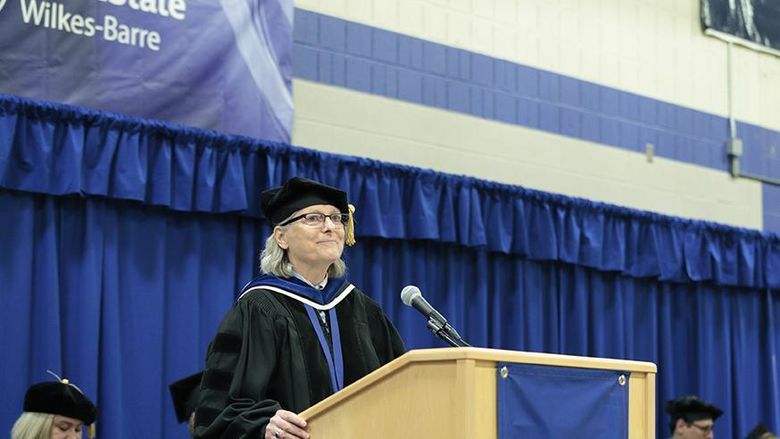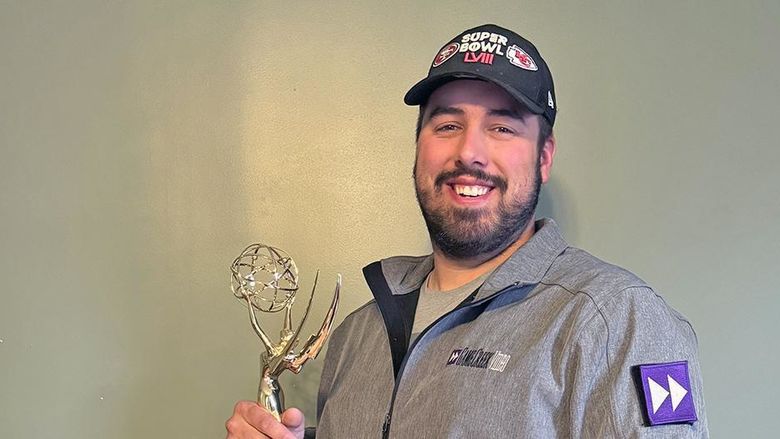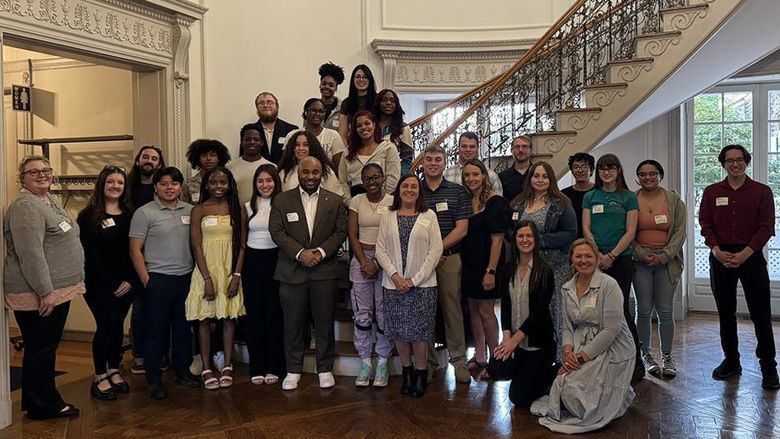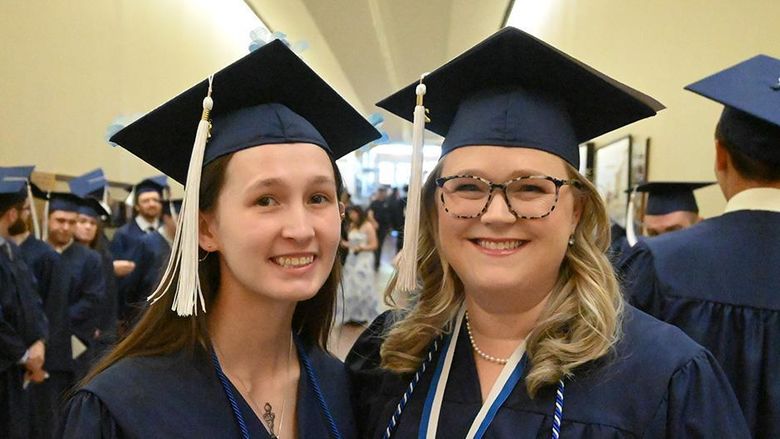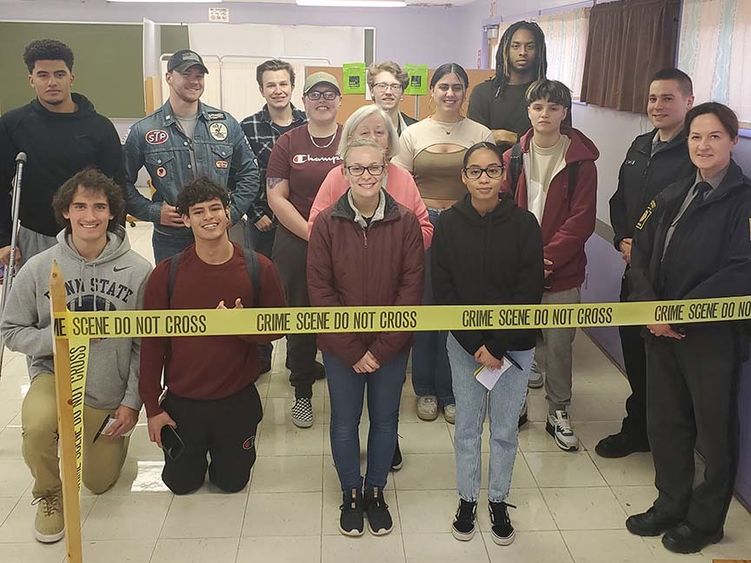
Students in the campus’ crime scene scenario lab with Pennsylvania State Trooper Deanna Piekanski and Forensic Photographer Trooper Peter Smith.
DALLAS, Pa. — In conjunction with Penn State Wilkes-Barre’s forensic photography class and various criminal justice classes, students have the unique opportunity to employ class curriculum in a mock “crime scene scenario lab” on campus.
These simulated lab experiences and other forensic-related presentations planned for April provide real-world context and local expertise for students, faculty, staff and the public — all of whom are invited to attend at no cost.
Event series
Monday, April 3, 1:25 to 2:15 p.m. in the Crime Scene Scenario Lab — Students will experience and work to photograph their second simulated scenario in the lab. The first of the series — which students photographed March 20 — was a mock home invasion scene during which they were guided by Pennsylvania State Police Forensic Photographer Trooper Peter Smith and Public Relations Liaison Trooper William Evans.
Wednesday, April 12, 1:25 to 2:15 p.m. in Penn State Wilkes-Barre’s Barry Auditorium in the Nesbitt Academic Commons — Retired Luzerne County Chief Deputy Coroner Dennis Dobinick will visit campus, presenting photographs and detailing his extensive experience in crime scene processing as well as his expertise in standard processing and documentation procedures.
Friday, April 14, 1:25 to 2:15 p.m. in Penn State Wilkes-Barre’s Barry Auditorium in the Nesbitt Academic Commons — Jarrett Ferrentino, assistant district attorney in Luzerne County, will discuss his experience working on the Hugo Selenski case and provide insight into Luzerne County courts.
Monday, April 17, 1:25-2:15 p.m. in the Crime Scene Scenario Lab — Students will experience and photograph their third simulated scenario, “Tax Time Tragedy,” in the lab.
In the Forensic Photography course (FRNAR 100) at Penn State Wilkes-Barre, students apply and implement photographic fundamentals in forensic settings for evidence documentation such as accidents, injuries, fingerprints, footprints and bloodstains. Students are required to follow the standards and guidelines created by scientific working groups when taking these forensic images. The criminal justice courses offered at Penn State Wilkes-Barre build on the foundational values of justice, equity, humanity and mercy. Students are immersed in the philosophy of restorative justice, along with traditional approaches to criminal justice. They learn how to apply these values and the restorative philosophy to interactions with offenders, victims, witnesses, co-workers, families, community members and anyone else they meet as they fulfill their duties as criminal justice professionals.
All events are free and open to the public. Due to the limited available space and safety protocols for all the aforementioned events, reservations are requested. Contact Jonathan Pineno at 570-675-9159 or at [email protected].
